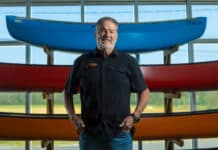Don’t get Todd Frank started on pro deals. The veteran retailer owns The Trail Head and Trail Head River Sports in Missoula, Montana, where seemingly everyone in town has a pro deal or a hookup.
You already know what he’s going to say.
“There’s not a day that goes by where we’re not faced with somebody who comes in getting sized for a product or looking at a product, and then as they walk out the door,” he says. “They’re like, ‘Hey, thanks for the help. My buddy’s a fishing guide. I’m just going to get this on pro deal.’”
Frank can only watch the sale walk out the door, and wonder about the irony. After all, the whole point of pro deals is supposed to be getting gear into the hands of core users who will sing its praises, thus driving full-price retail sales. The discount is supposed to go to the guy on the sales floor answering the questions, not the dude who came in off the street looking for advice.
Or is it? What if some pro-deal programs have evolved into another way to move inventory? That’s how it looks to a growing number of industry veterans.
“Fifteen years ago, pro-dealing was a marketing tool. A handful of store employees got pro deals, and that was it. Now anyone can get a pro deal and it’s become a full-on sales channel,” says Immersion Research president John Weld. “It’s one of the key reasons why the retailer-manufacturer relationship is falling apart.”
The typical pro-deal discount ranges from about 30 to 60 percent, which pencils out to a sales price that is comparable—and in many cases higher—than wholesale. As the number of people with access to pro deals has continued to grow, retailers and some manufacturers say the programs have become a way for brands to sell direct-to-consumer at a discount, without violating MAP [minimum advertised price] policies.

Liberal pro deal programs risk weakening both retail sales and brand integrity, says Brian DeFouw, head buyer at Confluence Ski and Kayak in Denver. “It’s really pandering to a direct-to-consumer model that is not supportive of retail and doesn’t do what the brands claim,” he says. “All it does is cheapen their gear. It just means people won’t pay retail for it.”
DeFouw says it’s not at all unusual for customers to waltz into his shop and boast about their pro deals they receive directly from brands or, increasingly, through third-party online platforms. That in itself is a mark of how far they are from the core of the industry. “They want to get fitted for stuff. They want advice and they want to know how things are going to work, and you’re like ‘Oh, you’re a pro, who do you paddle for?’ and they say their buddy is with the fire department.”
DeFouw says easier access to pro deals undermines what should be the core market for outdoor specialty retailers—active enthusiasts with good jobs outside the industry. “The majority of the customers who come in bragging about their pro deals make three times in a year what I make,” he says. “If you’re a real pro, you’ve probably taken the vow of poverty to work in the industry. Those are the real influencers—not guys who join the Alpine Club and get 60 percent off on all these brands.”
Ten or 20 years ago, most brands managed their pro programs through their marketing departments, with an eye toward getting their gear into the hands of people others looked to for advice, be they retail employees, guides or local ringleaders. Now a number of third-party companies manage pro deals en masse, making it easier for anyone with a connection to the outdoor industry to access discounts from multiple brands with a single application. Online platforms such as ExpertVoice, Outdoorly, Liberty Mountain, IPA Collective and Outdoor Prolink manage pro programs for hundreds of brands in exchange for fees and commissions.
“The definition of what was pro really started to change when these third-party sites came on the scene, and that’s because their business model was pushing as much product through that channel as they could. I don’t call it pro deals anymore. I call it discount direct-to-consumer.” —Todd Frank, Trail Head River Sport
“The definition of what was pro really started to change when these third-party sites came on the scene, and that’s because their business model was pushing as much product through that channel as they could,” Frank says. “I don’t call it pro deals anymore. I call it discount direct to consumer.”
ExpertVoice CEO Tom Stockham takes issue with that characterization. “We exist to help consumers make more confident full-price buying decisions, period, full-stop,” he says. “We think we have figured out a unique way to do so that is good for brands, good for retailers, good for consumers and good for experts.”
ExpertVoice is the largest of the third-party pro sites, with more than one million members—the company calls them “active experts”—in a variety of outdoor and outdoor-adjacent industries, from retailers and guides to fitness instructors and pet store workers. Stockham says the company facilitated about $150 million in sales in the last 12 months.
A coalition of independent specialty retailers sees that channel as an existential threat to their stores and the brands they sell, and is urging its members to fight back. In June, Grassroots Outdoor Alliance (GOA) circulated a letter to industry leaders claiming ExpertVoice erodes the ability of brands to sell at full price in other consumer channels, including direct-to-consumer, big box specialty, and independent specialty outdoor retailers.
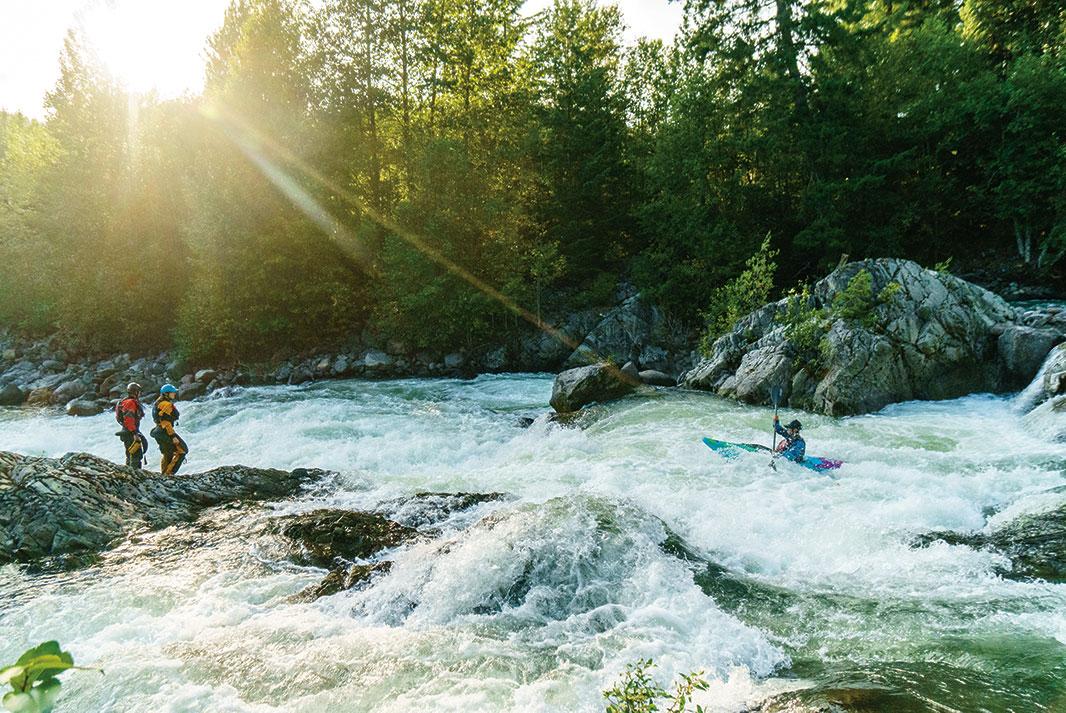
“Creation of off-price loyalists at the expense of brand equity cements a change in consumer buying behavior that is immediate and irrevocable,” GOA states in the letter, provocatively titled “The ExpertVoice Consumer Database and Permanent Brand Damage.”
The letter characterizes ExpertVoice’s business strategy as bringing a whole lot more people into the pro deal tent, and letting them stay as long as they like. Take an avalanche safety course for backcountry skiing? You’re in—and not just for ski gear. Depending on the platform and brand, you could also gain access to discounts on gear for hiking, climbing, biking and paddling.
The issue of bloated pro deal access has been simmering for years and came to full boil after ExpertVoice opened access to what GOA calls “general association databases” such as healthcare workers, firefighters, police and active military, as well as “paid membership organizations with no qualification requirements.” The latter includes nonprofits such as the American Canoe Association, Paddle Canada and American Whitewater, but also the for-profit streaming service Teton Gravity Research.
“Teton Gravity Research put out a promotion saying, ‘Join TGR and get an ExpertVoice membership,’” says GOA spokesman Drew Simmons of Pale Morning Media. “That’s not a pro. That’s like somebody buying a subscription to Sports Illustrated and getting a discount.”
The same holds for people who get pro deals through professional affiliations. If you work for the U.S. Department of the Interior—that’s the Forest Service, Bureau of Land Management, U.S. Fish & Wildlife and National Park Service, among others—you qualify as an ExpertVoice pro, whether you’re a river ranger on the Grand Canyon or a desk jockey in Washington, D.C.
Nobody is saying the river ranger shouldn’t have a pro form, but Frank says when a wildland firefighter walks into his shop with a brand new pair of Scarpa ski boots to be mounted, it feels like overreach. “You should be able to get a Scarpa wildland firefighting boot,” he says. “We could probably even stretch and say you should get a pro deal on packs, sleeping bags and anything else that’s associated with your job—but the sidebars on the sort of gear you can buy just aren’t there.”
Stockham says it’s up to the brands to decide how widely their deals are shared, choosing categories of experts that fit their marketing strategy. “Typically a brand would say they want to target people who currently work at a given retailer, and that is the only access those people would get and that brand would deliver,” Stockham says.
ExpertVoice was founded in 2004 as Experticity, a pro site and online training forum for retail employees in the outdoor industry. It still serves that purpose, but critics say its primary role has evolved into that of a discount sales channel. And, claims GOA, once you’re in, you’re in for good.
“Based on ExpertVoice membership statistics listed on their website, the ExpertVoice database includes a significant number of “phantom” employees—consumers who have gained permanent brand discount status through an ExpertVoice approved company or organization, yet do not exist on that group’s actual member list.”
As evidence, GOA compares current employment figures at its 86 member retailers and four big-box chains with the number of people shown as employees of those stores on the EpertVoice website. The results suggest many ExpertVoice pros hold onto their discount privileges far longer than their retail gigs. For example, Rutabaga Paddlesports in Madison, Wisconsin, has 23 people on payroll and 163 registered as pros at ExpertVoice. Nantahala Outdoor Center, a North Carolina outdoor store and rafting outfitter with just 20 full-time employees, had 531 affiliated pros on the ExpertVoice website. Those specialty numbers pale in comparison to Dick’s Sporting Goods, which reports about 50,100 current employees and had 130,449 people registered as pros on the ExpertVoice website when GOA conducted its search on May 20, 2021.
Paddling Business verified the figures on the ExpertVoice website, which on June 5 reported 130,924 members with a Dick’s affiliation, and 553 connected to NOC. By June 10, after the GOA letter had been distributed, the ExpertVoice website tool had been changed so a search of “Dick’s Sporting Goods retail employees” now returns a result of “1,000 employees or more,” rather than a precise figure.
GOA’s criticism has left other pro-deal platforms scrambling to distance themselves from ExpertVoice. Outdoor Prolink went so far as to release a “manifesto” in June, which details how its program and member list differs from those of ExpertVoice, without mentioning that company by name.
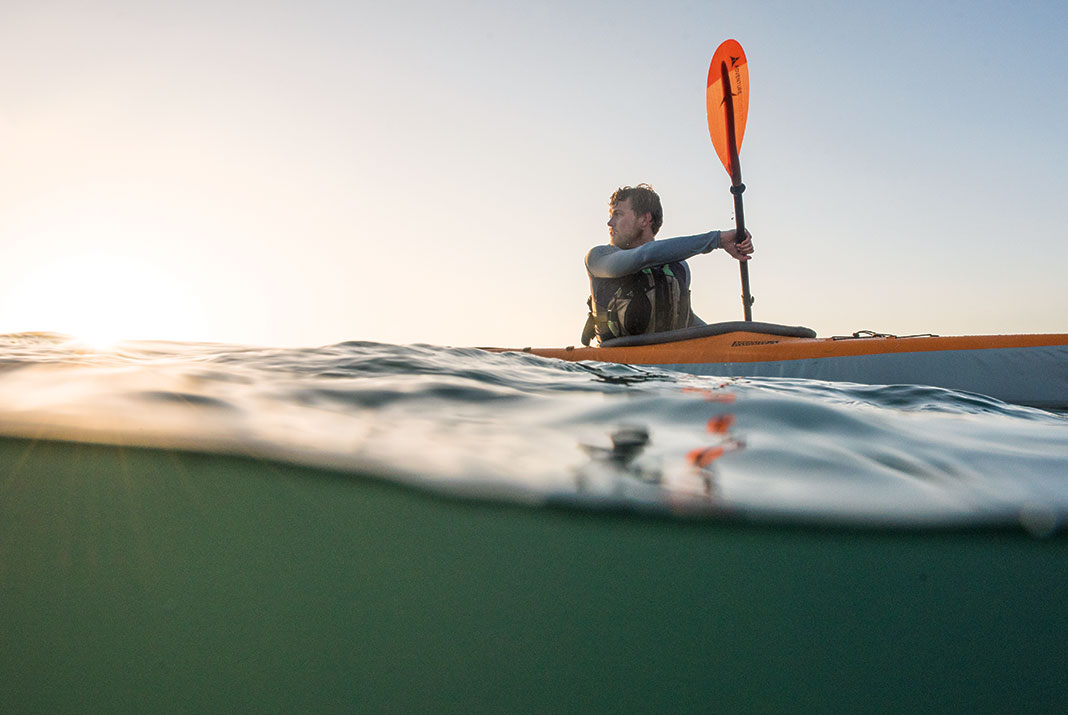
“While our membership base may seem small in comparison with others, we will not compromise when it comes to maintaining our authenticity,” declares the manifesto, which also touts Outdoor Prolink’s origins in founder Gareth Richard’s basement in (where else?) Boulder, Colorado. The company says it does not does not accept “enthusiasts, ‘experts’ or hobbyists; subscribers, members of or donors to outdoor clubs, non-profits or publications; students and participants of outdoor skills courses,” or people who don’t work in the outdoor industry.
“Treating a pro purchase program as nothing more than a direct-sales channel is dangerous territory, and we believe this mentality is what has led some of our competitors to loosen qualification restrictions in order to boost sales,” Outdoor Prolink Chief Marketing Officer Kenzie Rodriguez said in an emailed response to written questions from Paddling Business.
None of the online pro sites are running a particularly tight ship, as reporters for industry magazine The Voice discovered last year when they applied to five pro deal platforms including ExpertVoice and Outdoor Prolink using fake personas and bogus documentation. While “Minnie Mouse” only scored one pro deal with Liberty Mountain (using a coffee-shop punch card as proof of employment) a faux yoga instructor was accepted by four out of five platforms, and a fictitious outdoor store employee went five-for-five. The magazine used the same three personas to apply directly to pro programs at six different brands, with a 27 percent success rate.
“I registered for ExpertVoice as a dead president using a fake pay stub from the U.S. government, and was approved in basically an hour,” Frank says.
Outdoor Prolink says its pros are required to submit new documentation every 12 months or lose their privileges. The platform currently has 130,000 members—about equal to the number of former and active Dick’s Sporting Goods employees with an ExpertVoice hookup.
Stockham says the GOA letter overstates the significance of those top-line numbers, which in the ExpertVoice system deliberately include both current and former employees. “They think of a pro program as you’re either in or you’re out with one credential, but that’s not how our system works,” Stockham says. “Ours includes a bunch of credentials, much more like a LinkedIn profile than a single ticket.”
Just as LinkedIn doesn’t scrub your old jobs from your resume when you move on, ExpertVoice doesn’t remove former work affiliations. If you pushed rubber for Nantahala Outdoor Center one summer, that experience stays on your ExpertVoice profile no matter what you’re doing now. Take those 130,449 Dick’s employees. Stockham says only 21,812 were active on the ExpertVoice website in the 12 months. He also said—twice, because we asked him to clarify this point—that all 21,812 are current Dick’s employees. Of those, he says roughly 3,800 made a purchase through ExpertVoice in the last year.
“For most organizations your credential is only good [on ExpertVoice] for a limited amount of time. Each year your credential expires and you have to re-verify,” Stockham says. While retail store owners can choose to manage their employee lists on the ExpertVoice website, they can’t remove former employees from the program—nor should they, Stockham says. “Just like on LinkedIn, your former employer can’t go in and erase your past job.”
One thing retailers can do is ask brands not to participate with third-party pro sites, and choose not to carry those that do. “We are purposefully not working with brands that support ExpertVoice,” says Rutabaga Paddlesports owner Darren Bush. “We’re walking away and we’ve told brands this is why we’re walking away. If enough people do this, brands will stop working with ExpertVoice.” Some already have. Yakima closed its store on ExpertVoice after hearing from Bush and other specialty retailers. “The magic order-writing pen seems to be what makes vendors listen,” Frank says.
Third-party sites are only one reason pro deals have proliferated in recent years. Brands that manage their own programs have increased volume through pro channels as well. Look no farther than Patagonia and prAna, both of which print lavish pro-deal catalogs, Weld says. “To say that isn’t a legitimate sales channel for them is nonsense.”
Patagonia gets high marks for controlling pro-form access, requiring regular verification from its pros. But the brand has also used the program to push seasonal sales, particularly through “friends-and-family” promotions allowing a savvy pro to fill the space under a Christmas tree with discounted gear—and have the unintended effect of training consumers to wait for the discounts rather than purchasing at full price from retailers.
“Manufacturers can easily get addicted to pro deals. It’s easy money. You basically get wholesale pricing, except you’re getting it at net zero on a credit card,” he says. Pro deals also typically include modified warranty policies reducing the expense and hassle of returns.
When done right, pro deals can be very effective marketing tools. Look no farther than Jackson Adventures, which built its brand around the whitewater exploits of company namesake Eric “EJ” Jackson and his family. The company later extended the strategy to build a powerful presence in the kayak fishing segment.
The key is demanding return on the pro deal investment, and coordinating strategy with retailers, says James McBeath, Jackson’s lifestyle and outdoor marketing lead. “We’re actually aligning team members with our dealers,” he says. The company keeps a tight rein on pro discounts, with preference to team members who are good on a dealer sales floor or active in local paddling communities. That wasn’t always the case.
“In the old days, EJ had such a huge whitewater team that at the end of the season these boats all of a sudden started flooding into the used market,” McBeath says. Now, when team members trade up, Jackson asks them to sell their old boats through local dealers.
Such cooperation will have to be at the heart of any successful pro deal reform, Weld says. The flip side of brands selling direct to consumer is retailers taking fewer reorders. These trends have tracked in parallel in recent years, as internet sales have increased and on-demand shipping has become more common.
“We’ve gotten into this spiral, where manufacturers say to retailers, ‘If you’re not going to hold inventory we’re going to keep selling direct.’ You get into this position where manufacturers can replace, or at least deeply augment, the retail sales channel with a pro-deal channel and bingo, here we are.” —John Weld, Immersion Research
“We’ve gotten into this spiral, where manufacturers say to retailers, ‘If you’re not going to hold inventory we’re going to keep selling direct.’ You get into this position where manufacturers can replace, or at least deeply augment, the retail sales channel with a pro deal channel and bingo, here we are,” Weld says.
Reining in pro deals would take an industry-wide effort, with all sides willing to give a little, he says. This includes retailers committing to more preorders and brands agreeing to a sort of pro-form armistice. Reform is the goal, because it’s not the concept of pro deals that’s flawed, it’s the execution. The idea someone can get an ExpertVoice membership simply by subscribing to Teton Gravity Research raised hackles at GOA, but the linking of third-party pro platforms with advocacy organizations does have an upside. Last year Outdoor Prolink made American Whitewater one of four featured non-profits that members can donate to at checkout, and raised more than $5,000 for the organization.
Weld turned the non-profit backdoor on its head. Becoming an American Whitewater member won’t get you an Immersion Research pro form, he says—but you also won’t get one without it.
“We made every pro deal customer join American Whitewater,” Weld says. “Without an AW membership, or something similar if you’re a sea kayaker, you can’t get a pro deal. I would encourage all manufacturers in our industry to adopt this program.”
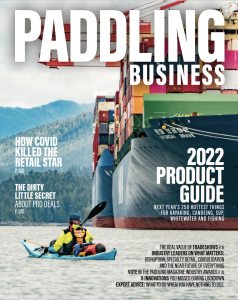
Photo: Artem Peretiatko/istock.com


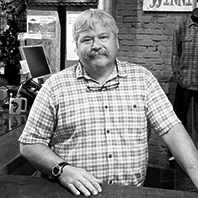 “The definition of what was pro really started to change when these third-party sites came on the scene, and that’s because their business model was pushing as much product through that channel as they could. I don’t call it pro deals anymore. I call it discount direct-to-consumer.”
“The definition of what was pro really started to change when these third-party sites came on the scene, and that’s because their business model was pushing as much product through that channel as they could. I don’t call it pro deals anymore. I call it discount direct-to-consumer.”



